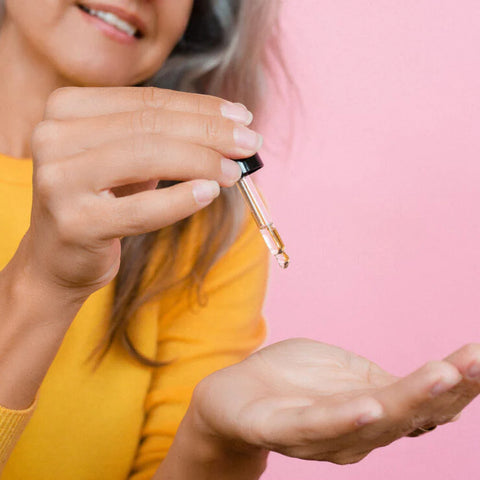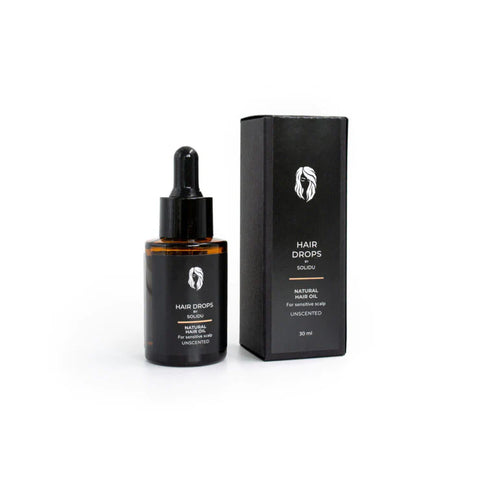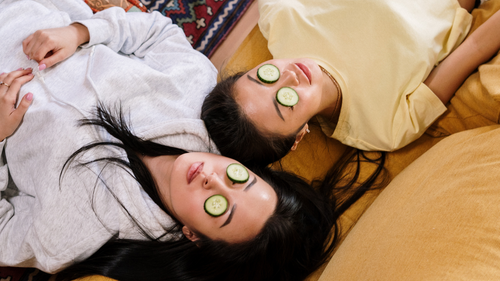A Comprehensive Guide for Healthy Scalp.

You love your beautiful long hair but maintaining it has been tough lately? Your scalp has been troubling you as well? Don't worry we have got you covered. Your hair often takes the spotlight, but let's not forget the vital role played by your scalp in maintaining healthy, stunning locks. Scalp health is the foundation of vibrant, glossy hair, yet it's a subject frequently overlooked.
Much like fertile soil supports the growth of a robust tree, your scalp serves as the nurturing environment for your hair follicles. Neglecting its well-being can lead to various issues, from dandruff and discomfort to excessive oiliness and hair loss. In this comprehensive guide, we embark on an exploration of the realm of scalp health, delving into the intricacies of sustaining a balanced, thriving scalp.
From discerning the nuances among different scalp types to unravelling the underlying causes of common problems and presenting expert advice and remedies, we'll equip you with the knowledge and tools necessary to ensure your scalp forms the ideal foundation for the hair of your dreams. Now, let's delve into the realm of scalp health and unveil the strategies for fostering robust and vibrant hair.
We'll explore the components of sustaining a well-balanced scalp and the methods to safeguard both your hair and scalp.

Know Your Scalp Type
Understanding your scalp type is the first step in achieving optimal scalp health. Scalps can generally be categorised into two primary types: dry and oily.
The dry vs. oily scalp dilemma may seem significant, but it's relatively minor.
Dry scalps often deal with symptoms like flakiness, itching, and a tight or uncomfortable feeling. On the other hand, oily scalps tend to produce excess sebum, resulting in greasiness and a propensity for clogged hair follicles.
To determine your specific scalp type, observe how your scalp behaves a day or two after washing. If your scalp feels parched and itchy, and flakes are visible, you likely have a dry scalp. Conversely, if your scalp becomes oily relatively quickly after washing, leading to that frequent need for shampooing, you probably have an oily scalp.
Recognizing your scalp type will allow you to tailor your hair care routine more effectively, ensuring it addresses your specific needs and promotes a balanced, healthy scalp.
Understanding Scalp Issues: Causes and Solutions
Frequently encountered scalp issues like dandruff, itching, flakiness, and sensitivity can impact individuals regardless of whether they have dry or oily scalps.
Dandruff, often triggered by the excessive growth of a fungus known as Malassezia, can manifest on dry scalps due to their limited ability to retain moisture effectively.
In contrast, on oily scalps, excessive sebum can contribute to dandruff by creating an environment conducive to fungal growth. Itching can arise from various factors, including allergies, irritants in hair products, or a reaction to excess sebum on oily scalps.
Flakiness, seen in both dry and oily scalps, results from skin shedding at an irregular rate. Sensitivity, often linked to inflammation, can affect dry scalps due to a lack of natural oils to protect the skin, while on oily scalps, excessive sebum production can lead to clogged pores and subsequent sensitivity. A product like Solidu Cosmetics Hair Drops - Sensitive is great for a sensitive scalp.
Understanding these causes helps in tailoring effective solutions for specific scalp types.

Optimising Scalp Health: What You Can Do
When it comes to addressing scalp problems, the right remedies and products play a crucial role. Tailoring your hair care routine to your specific scalp type, be it dry or oily, can make a significant difference.
Incorporating regular scalp massages into your routine not only promotes relaxation but also enhances blood circulation and nutrient delivery to the scalp, benefiting both dry and oily scalps.
Additionally, a well-balanced diet rich in essential vitamins and minerals can contribute to overall scalp health. Lifestyle factors like managing stress, getting adequate sleep, and engaging in regular physical activity are vital for maintaining a balanced scalp environment.
Safeguarding your scalp from pollution and UV radiation is essential for preventing damage. Selecting the right products, incorporating massage techniques, nourishing your body with proper nutrition, and being mindful of lifestyle choices and environmental protection measures collectively form a holistic approach to achieving and maintaining optimal scalp health.
Scalp Care: Doing What's Best
Unique characteristics of different scalp types are pivotal to promoting overall scalp health. Whether you have a dry or oily scalp, tailoring your hair care routine accordingly can significantly impact the condition of your hair and the comfort of your scalp. When it comes to styling, selecting hairstyles and hair accessories that are gentle on your particular scalp type can minimise potential damage and discomfort.
Additionally, seeking professional care, such as consultations with dermatologists or trichologists, can provide invaluable insights into scalp issues and guide personalised treatments. Apart from the physical benefits, maintaining good scalp health can also have a positive impact on self-confidence. A healthy scalp fosters hair growth and reduces common problems like itching and dandruff, enabling individuals to feel more comfortable and self-assured in their appearance.
So, whether your scalp leans toward dryness or oiliness, addressing its unique needs not only promotes better health but also enhances your overall sense of confidence and well-being.
Scalp Health Maintenance Guide
Maintaining optimal scalp health is essential, and the approach can vary depending on whether you have dry or oily hair.
If you're dealing with a dry scalp, prioritise hydration.
- Opt for sulphate-free shampoos and conditioners with moisturising properties to prevent further dryness.
- Limit your shampooing to two or three times a week as excessive washing can strip away natural oils.
- Regular scalp massages can be beneficial to enhance blood circulation and distribute essential oils evenly.
On the other hand, for those with oily scalps:
- focus on gentle cleansing using sulphate-free, clarifying shampoos to manage excess sebum.
- wash more frequently, avoid overdoing it as it might stimulate increased oil production.
- In between washes, consider using a dry shampoo to absorb excess oil.
Maintaining a well-balanced diet, managing stress levels, and safeguarding your scalp from environmental factors remain universal principles for promoting optimal scalp health.
Perfect Hair Care Routine
Selecting the appropriate hair care routine is pivotal for maintaining scalp health, especially when considering varying hair types such as dry and oily.
For those with dry hair and a corresponding dry scalp:
- opt for hydrating and sulphate-free shampoos and conditioners.
- weekly deep conditioning treatments can help replenish lost moisture.
- Solidu Cosmetics Cinnamon Spicy & Everything Nice - Shampoo is great choice for dry scalp.
On the other hand, for people with oily hair and scalps
- focus on gentle, clarifying shampoos without sulfites.
- frequent but not excessive washing is key to managing oil production.
- Shampoos like Solidu Cosmetics
A well-balanced routine for any hair type should involve regular scalp massages to stimulate circulation and even distribution of natural oils.
Moreover, always consider your hair's specific needs when choosing products and techniques. Regardless of whether your hair leans toward dryness or oiliness, the right hair care routine can significantly contribute to maintaining a healthy scalp.
FAQs
How does age affect scalp health?
As we age, the scalp may become drier and less flexible, which can lead to discomfort.
Are there scalp issues indicating medical conditions?
Yes, persistent itching, hair loss, or unusual bumps could be signs of underlying health problems. Consult a doctor if you notice these.
Does styling and heat tools impact scalp health?
Excessive use of styling products or heat tools can cause scalp issues like oiliness or product buildup. Moderation and proper cleaning help prevent these problems.
Can scalp health affect hair's appearance?
Yes, scalp condition directly influences hair's look and feel. A healthy scalp promotes shiny, strong hair, while issues can lead to dryness, oiliness, or thinning hair.
Conclusion
Scalp health is the cornerstone of beautiful, manageable hair. Whether your scalp tends to be dry or oily, the key is customization. Tailoring your hair care routine to suit your scalp's unique needs through product selection, balanced nutrition, and regular massages can lead to both a comfortable scalp and impressive hair quality. By nurturing your scalp, you're not only preventing common issues but also boosting your self-confidence with the lustrous hair you desire. So, embrace these scalp care practices, and enjoy the benefits of healthy, stunning locks that leave you feeling and looking your best.


